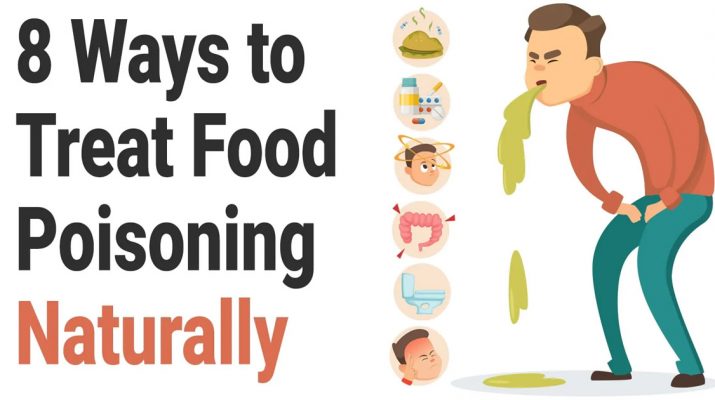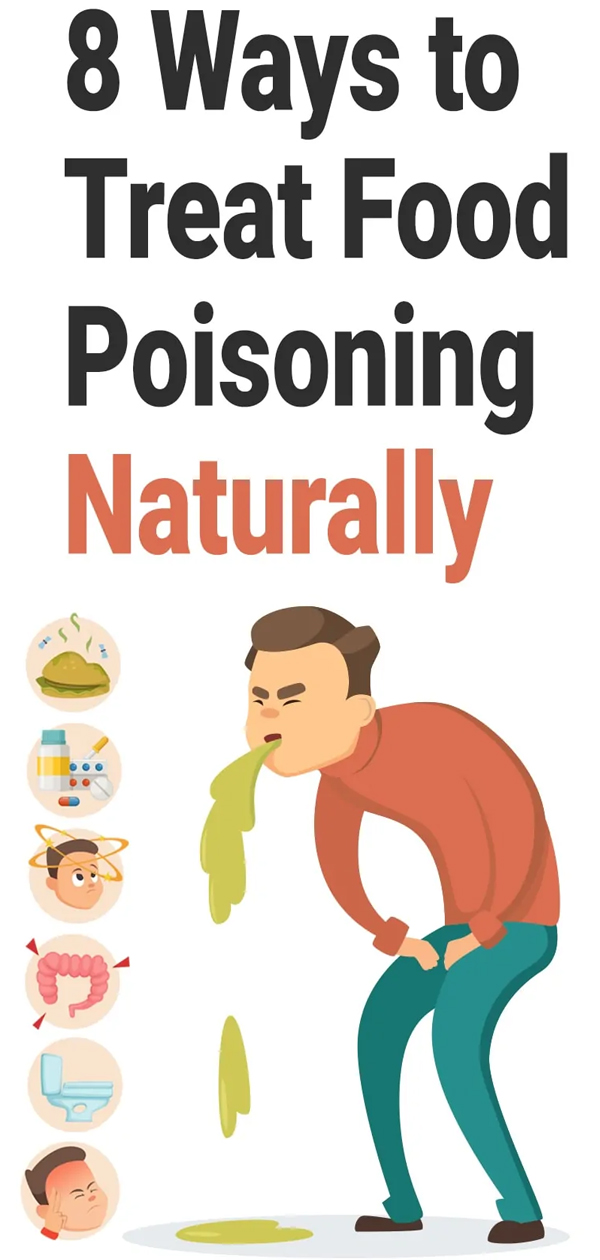Food poisoning has to be one of the most unpleasant experiences anyone can endure, making you feel like you never want to eat another morsel of food again. Some symptoms of food poisoning include diarrhea, nausea, and vomiting.
Needless to say, these symptoms will keep you in the bathroom for an exorbitant amount of time. And when you’re not in the bathroom, you’ll probably find yourself in bed, curled up in pain. As such, it’s not uncommon to also feel fatigued, have a loss of appetite, and experience headaches.
So what is food poisoning, and how can you avoid it? These are the question that this article will endeavor to answer. We will detail several home remedies that can help alleviate pain and resolve symptoms. Also, we will address when it is appropriate to seek medical attention.
What Causes Food-Related Illnesses?
If you’re experiencing food poisoning, it’s difficult to mistake it for anything else. Why? Well, the pain and accompanying symptoms will begin shortly after consuming food that is toxic, contaminated, or expired. But what causes the foods we love to seemingly turn on us? Well, we can find a variety of reason including:
- Parasites – This food-related illness is rare but can be very serious. Commonly referred to as toxoplasma, this parasite is typically found in cat litter and can be fatal if consumed. Those, especially at risk, include pregnant women and those with weak or compromised immune systems.
- Bacteria – This type of food poisoning is the most common. Typically, it results from the salmonella bacteria attaching itself to foods like mayonnaise, eggs, and chicken. Bacteria can also stem from E. coli, commonly found in salads. Clostridium botulinum, another relatively common form of food poisoning, usually occurs after eating contaminated canned foods.
- Viruses – The Norovirus is one of the most common, not to mention lethal, forms of food poisoning. In fact, it accounts for more than 19 million cases for food poisoning annually and is often the result of eating contaminated lettuce or certain fresh fruits.
Food Poisoning Remedies At Home
When you’re experiencing a food-related illness, your first inclination will probably be to seek prompt medical treatment, but that is not always necessary. Despite the many overwhelming symptoms, most food-related illnesses can find their remedy at home. In fact, you probably already have the necessary ingredients at your disposal.
Apple Cider Vinegar
Apple cider vinegar may prove a valuable ally in your fight to overcome a food-related illness. Wow does it work, exactly? Well, apple cider vinegar contains a number of antibacterial properties that work to combat food-borne pathogenic bacteria like those mentioned in the preface of this article, E. coli, salmonella, and Clostridium botulinum.
With a variety of minerals and enzymes, apple cider vinegar can also aid in hydrating and stabilizing the body as you work towards recovering from your illness. Here are some easy to follow instructions to help get you started:
- Add 1 to 2 tablespoons of unfiltered apple cider vinegar to a glass of warm water.
- Thoroughly mix water and apple cider vinegar together.
- Drink the mixture 2 to 3 times a day or until your symptoms have subsided.
ESSENTIAL OILS AND FOOD POISONING REMEDIES
Essential oils offer a variety of health benefits, including relief from food-borne pathogenic bacteria. For example, studies have shown that oregano essential oil can help resolve food-related illnesses based on its antimicrobial properties, which work to flush pathogens from the body. To get started, you will need to do the following:
- Add 1 drop of high-quality, food-grade oregano oil to a glass of water.
- Thoroughly mix water and oregano oil.
- Drink the mixture 1 to 2 times per day or until symptoms have subsided.
Thyme
Along with oregano, thyme oil is also a great way to overcome food-borne illnesses. This particular essential oil is comprised of carvacrol, thymol, and linalool, which work collectively to remove pathogens from the body. The process to get started is similar that of oregano essential oil in that you will need to do the following:
- Add 1 drop of high-quality thyme oil to a glass of water.
- Thoroughly mix water and thyme oil together.
- Drink the mixture 1 to 2 times per day or until symptoms have subsided.
Garlic To Treat Food-Borne Illnesses
It turns out garlic is much more than a plant in the Allium family; it is also a superfood that can help get you back on your feet after contracting a food-borne illness. So why did garlic make it to this list of food poisoning remedies? Well, garlic contains an array of properties that can help remove pathogens from the body. It also has the capacity to resolve symptoms typical of food-borne illnesses, like diarrhea for example. Here is what you will need to get started on your way to recovery:
- Peel 2 to 3 garlic cloves and consume them.
- To make the experience more palatable, you can add honey and consume both ingredients together.
- Continue consuming garlic cloves until your symptoms have subsided.
Honey With Ginger
For those looking to add a little culinary flair to their food poisoning remedies, you may want to try simmering honey and ginger on low heat. The benefits are similar to that of eating raw garlic cloves, but the taste is markedly better. Here are a few instructions to help get you started:
- Add 1 to 2 slices of the ginger root along with a cup of water to a saucepan.
- Bring the combination to a boil and allow to simmer for 5 minutes before straining.
- Allow the liquid concoction to cool before adding honey.
- Consume the mixture for a minimum of three days or until your food-borne illness has subsided.
Grapefruit Seed Extract
Although grapefruit has vitamin C that can help you recover from a cold, it also contains antimicrobial properties that work to resolve food-borne pathogens and speed recovery. It should be noted, however, that most potency derived from grapefruit is in grapefruit seed extract. To get started, you will need to do the following:
- Add 8 to 10 drops of grapefruit seed extract to 1 glass of water.
- Thoroughly combine the mixture.
- Consume the mixture for 3 to 5 days or until symptoms have subsided.
Lemon Juice
Not surprisingly, lemon juice is great for a variety of health reason, but it is especially useful in treating food-related illnesses. Along with vitamin C and folate, lemons contain antioxidants that can improve your overall health. Additionally, their antibacterial properties can fight off pathogens caused by food-borne illnesses. They can help with digestion problems as well. Here is the best way to get started:
- Combine the juice of half a lemon with a glass of water.
- Add 1 teaspoon of honey to the mixture.
- Consume the combination 2 to 3 times a day until your symptoms have subsided.
Basil
It’s no surprise that basil can add a great amount of flavor to your favorite foods, like spaghetti, for example. However, it can work wonders for those struggling with food-borne illnesses. The herb can calm stomach pain and other symptoms of food-related illness, due to its antimicrobial properties. If interested in trying this home remedy, try the following:
- Extract the juice from a handful of basil leaves.
- Add a teaspoon of honey to the extracted juice and consume it.
- Consume the mixture 3 to 4 times per day as needed.
Final Thoughts
It worth noting that the list of home remedies detailed in this article is not one that is all-encompassing. Many other treatments can also provide relief from food-related illness. However, this list includes the ones that have been found the most beneficial.
Also, the information provided in this article should not supersede any information provided to you from a licensed physician. To that point, if your food-related illness persists after trying any of the treatments recommended in this article, seek prompt medical treatment.
In summation, the best way to avoid food-borne illnesses is to eat foods that are properly cooked. Of course, the proper temperature can vary from food to food. For example, if you’re eating chicken, it should be cooked until it reaches an internal temperature of 165°F whereas eggs and ground beef, on the other hand, should be cooked until they reach 160°F.
Nonetheless, it is a good practice to familiarize one’s self with optimal cooking temperatures for all foods before consuming them. Lastly, you should avoid leftover foods that have been in the fridge for more than 3 days as they can become contaminated if they sit for too long.


